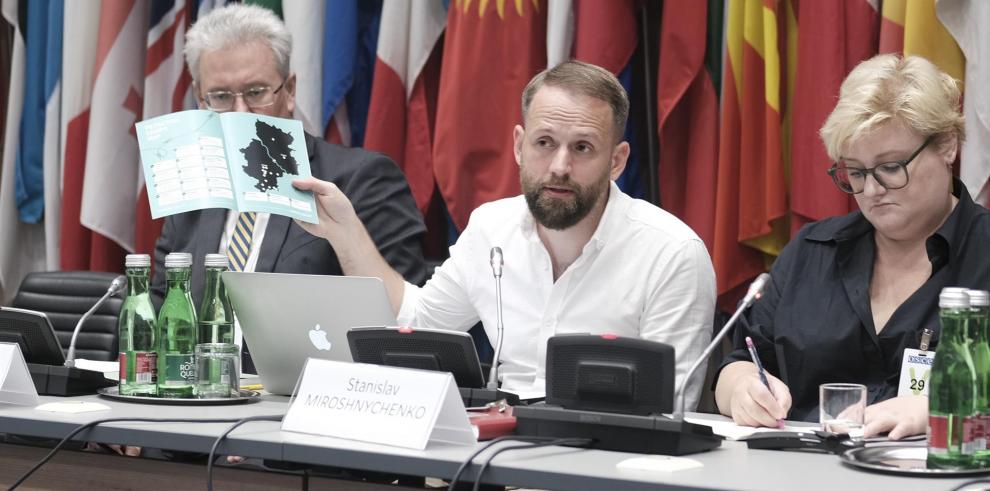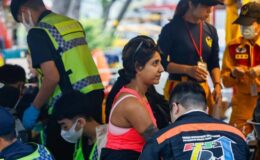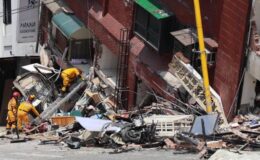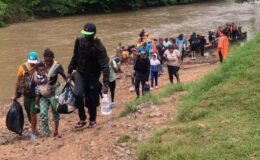What a surprise,,,,,,Human Rights cites multiple Russian violations.
- By : James Bryson
- Category : International Relations, World Events

Humiliation, beatings, constant hunger, overcrowding and no medical assistance. These are the experiences told by some of the victims of the so-called “filtration camps” that Russia has set up in occupied areas of Ukraine.
The nightmare of Ihor Talalay, 25, lasted exactly 88 days and began on March 19 because someone at a Russian checkpoint did not like his appearance.
This man from Dnipro, in southeastern Ukraine, was part of a group of volunteers helping civilians escape from the Russian siege of Mariupol.
When their caravan of cars left with the refugees, they had to pass several checkpoints and a Russian soldier detained Talalay. Right there came a first interrogation in which they tried to find some link with the Ukrainian army.
In these checkpoints, the Russian military force strip, look for tattoos or marks on the skin, such as bruises, which may indicate the use of weapons. They also check mobile phones to find any Ukrainian national or nationalist symbols.
“They started beating me to get the answers they expected from me. They stayed like that for about an hour, beating me over and over again,” says Talalay.
The young man is one of two survivors of the Russian filtration camps who gave their testimony this week at an event organized by Ukraine at the headquarters of the Organization for Security and Cooperation in Europe (OSCE) in Vienna.
In addition, two relatives of Serhii Tabachuk participated, interned in one of these camps and of whom they have not had news for months.
THREE LEVELS
The four are part of a study by the Ukrainian NGO “Media Initiative for Human Right” (MIHR), which has documented the existence of at least 18 of these filtration camps and estimates that tens of thousands of Ukrainians have already passed through these centers. since the start of the Russian invasion five months ago.
Stanislav Miroshnychenko, a member of that NGO, explains that the filtering process has three different stages, which gradually increase in violence, from interrogation and collecting personal data to torture.
If the first interrogation is “approved”, a stamped paper is obtained with the signature of the supervising officer, otherwise a captivity full of violence and pressure begins.
Miroshnychenko emphasizes the systematic nature of the entire process.
The first stage takes place at a security checkpoint, where documentation and belongings are checked, and if the suspect is suspected, he is sent to a first camp where he is put under more physical and mental pressure.
If they do not pass that second degree, they are transferred to another detention center or directly to a penal colony, where mistreatment and torture are constant, including extrajudicial murders.
The Ukrainian authorities have denounced the arrest, kidnapping and torture of local leaders, journalists, activists and, in general, anyone who is not loyal to the ideas of the Kremlin and its puppet republics.
HUNGER AND OVERCROWDING
For Talalay, the most difficult moment was his confinement in a police center in Donetsk, where, he recalls, he shared a cell of about 10 square meters with some thirty people. “It was like being in a can of sardines,” she remembers.
“All the food they gave us was oatmeal with water for breakfast and a broth for soup the rest of the day. They try to starve you. Hunger is a constant that accompanies you all the time,” he explains in statements to Efe in Vienna.
The young man’s nightmare ended in the same arbitrary way it began. One day, without explanation, they let him go and he was able to return to his city.
Russia calls the mere existence of filtration camps a “lie”, while the self-proclaimed pro-Russian republics of Donetsk and Lugansk deny the detention of civilians in what they define as “reception centers”.
Yurii Berezovski, a music teacher from Starobilsk, in a part of Lugansk occupied by Russia since March, describes an experience similar to that of Talalay, full of beatings, interrogations, pressure and arbitrary humiliation.
Berezovski went through the filtering process three times, the last time even in Russia, where he was questioned at a police station by three ski-masked members of the Russian FSB espionage service.
He believes that his contact with foreign NGOs, especially German ones, aroused the suspicions of the pro-Russian authorities in Lugansk, who questioned him in the belief that he was a spy.
“The worst thing is the uncertainty. Whenever they let me go they told me that they could come back for me. That’s why the third time – when they interrogated me in Russia – I told myself that I should flee, something I ended up doing through Lithuania,” he confesses. Berezovsky.



No Comments